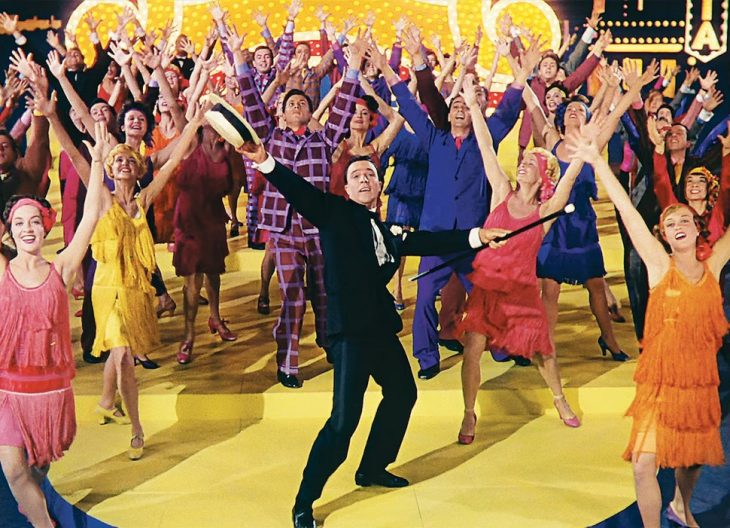
Word of the Day: Auxiliary
Today’s word of the day, thanks to Merriam-Webster, is auxiliary. Auxiliary can be either an adjective or a noun. As an adjective, it can mean “additional; supplementary; reserve” or “used as a substitute or reserve in case of need” (https://www.dictionary.com/browse/auxiliary). As a noun, it can mean “a person or thing that gives aid of any kind; helper” or “an organization allied with, but subsidiary to, a main body of restricted membership, especially one composed of members’ relatives” (ibid.). M-W says, “In general use, auxiliary describes someone or something available to provide extra help, power, etc., when it is needed. In linguistics, an auxiliary verb (also called a “helping verb”) is used with another verb to do things like show a verb’s tense or form a question. In nautical contexts, auxiliary can describe a sailboat equipped with a supplementary inboard engine, or a vessel that provides supplementary assistance to other ships” (https://www.merriam-webster.com/word-of-the-day). Of course, in contemporary English grammar, people now refer to auxiliary verbs as helping verbs more and more, perhaps because auxiliary is hard to say.
The adjective form of the word entered the English language “c. 1600, from Latin auxiliaris ‘helpful, aiding,’ from auxilium ‘aid, help, support,’ related to auctus, past participle of augere ‘to increase’ (from PIE root *aug– ‘to increase’)” (https://www.etymonline.com/search?q=auxiliary). The noun form also appeared “c. 1600, “foreign troops in service of a nation at war,” from auxiliary (adj.). The Latin adjective also was used as a noun in this sense. In grammar, ‘a verb used in forming phrases with other verbs and indicating mode or tense,’ 1762, from the adjective in this sense (1670s)” (ibid.).
But it’s also interesting to look at that PIE root: “*aug-: Proto-Indo-European root meaning ‘to increase.’ It forms all or part of: auction; augment; augmentative; augur; August; august; Augustus; author; authoritarian; authorize; auxiliary; auxin; eke (v.); inaugurate; nickname; waist; wax (v.1) ‘grow bigger or greater.
“It is the hypothetical source of/evidence for its existence is provided by: Sanskrit ojas– ‘strength,’ vaksayati ‘cause to grow;’ Lithuanian augu, augti ‘to grow,’ aukštas ‘high, of superior rank;’ Greek auxo ‘increase,’ auxein ‘to increase;’ Gothic aukan ‘to grow, increase;’ Latin augmentum ‘an increase, growth,’ augere ‘to increase, make big, enlarge, enrich;’ Old English eacien ‘to increase,’ German wachsen, Gothic wahsjan ‘to grow, increase’” (ibid.). You can definitely see wax (meaning ‘to grow bigger’) in German wachsen and Gothic wahsjan.
On this date in 1952, Singing in the Rain, a musical comedy movie directed by, choreographed by, and starring Gene Kelly, premiered at Radio City Music Hall. Stanley Donnen also received credit as director, and the movie also starred Debbie Reynolds and Donald O’Connor, and it featured Cyd Charisse, Jean Hagen, and Millard Mitchell (https://en.wikipedia.org/wiki/Singin%27_in_the_Rain). The film was well received by the critics, was nominated for a number of awards, and actually won a few, though it did not win any Academy Awards. Donald O’Connor won a Golden Globe as Best Actor in a Musical or Comedy (ibid.).
Pauline Kael, movie reviewer for the New Yorker, said, “This exuberant and malicious satire of Hollywood in the late twenties is perhaps the most enjoyable of movie musicals – just about the best Hollywood musical of all time.” Roger Ebert called it “a transcendent experience, and no one who loves movies can afford to miss it.” Rotten Tomatoes gave it a 100% on 64 reviews. Metacritic gave it 99%. The American Film Institute (AFI) ranked it #10 on their list of the top 100 films from the industries first 100 years. And “aesthetically significant,” Singing in the Rain was among the first 25 chosen (ibid.).
Here’s a summary of the plot: “The plot of the film is actually an autobiography of Hollywood itself at the dawn of the talkies. The story is about a dashing, smug but romantic silent film star and swashbuckling matinee idol (Don Lockwood) and his glamorous blonde screen partner/diva (Lina Lamont) who are expected, by studio heads, to pretend to be romantically involved with each other. They are also pressured by the studio boss R.F. Simpson (Millard Mitchell) to change their silent romantic drama (The Duelling Cavalier) and make their first sound picture, renamed as the musical The Dancing Cavalier. There’s one serious problem, however – the temperamental, narcissistic star has a shrill, screechy New York accent. The star’s ex-song-and-dance partner (Cosmo) proposes to turn the doomed film into a musical, and suggests that Don’s aspiring actress and ingenue dancer-girlfriend (Kathy Selden) dub in her singing voice behind the scenes for lip-synching Lina. The results of their scheming to expose the jealous Lina and put Kathy in a revealing limelight provide the film’s expected happy resolution” (https://www.filmsite.org/sing.html).
So Kathy Selden starts out as the auxiliary for Lina Lamont before getting the opportunity to become a star herself.
The fun part of this for me is that the movie script has been turned into a stage musical, and Southern Wesleyan University, the place where I taught for almost three decades, just did it. It was a lot of fun, especially because my son and daughter-in-law were in it. They had a great time doing it. The dancing wasn’t up to the level of Gene Kelly and Donald O’Connor, but who has ever reached their level (other than Fred Astaire and Ginger Rogers).
Today’s image is “Gene Kelly as Don Lockwood during the number ‘Broadway Rhythm Ballet’ in Singin’ in the Rain. (Warner Bros. Entertainment)” (https://www.washingtonpost.com/movies/2022/04/27/singin-in-the-rain-4k/).